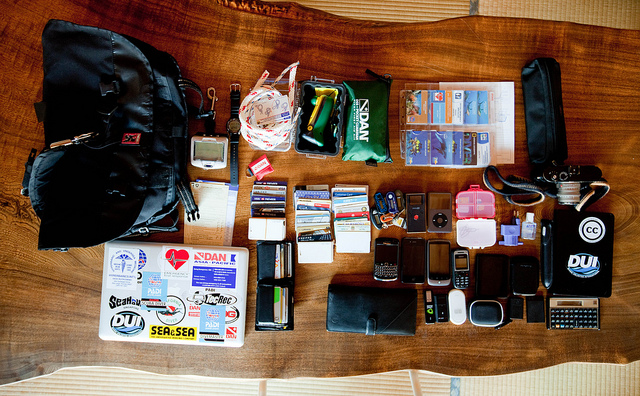
Photo Credit Joi Ito/Flickr
If you had looked in my purse in 1999, you would have been able to predict the iPhone. Inside, I had the following items: cell phone, address book, palm pilot, digital camera, pedometer, lipstick, computer, keys. Seven out of eight of those items have now converged, thanks to the smart phone.
It’s true that not just anyone would have predicted the future by looking in my purse. But an ethnographer could have. By observing my behaviors, including how I used all the tools I carried around with me, and talking to me about my frustrations and unmet needs, it would have been clear that what I needed was not another device, but just one device.
There are a lot of definitions of ethnography, but most boil down to “the observation and analysis of human groups considered as individual entities.” (Levi-Strauss) Ethnography has its roots in anthropology, and has been effectively borrowed by enterprise to understand how to better serve “human groups,” from consumers to workers. By understanding behaviors, values, tools, and unmet needs, enterprise clients have been developing products, services, and messaging to serve those target “human groups;” be they minivan moms, cancer survivors, or tech investors.
Ethnography is not just a powerful way of understanding current human needs and behaviors; it’s also a way to see what the future will bring. In my 15+ years as an ethnographer, I have seen ethnographic research predict the future again and again.
For example, an ethnographic research project on photography predicted the future of photography. Fifteen years ago. By observing the ways people were taking photographs, sharing them, storing them, and using them to communicate, that research pointed to the increasing importance of the photograph as a means of connecting with others and expressing oneself. But it also predicted the disembodiment of the photograph.
Another ethnographic project predicted the convergence of devices, as mentioned before with the Smartphone example. And on a more sober note, yet another ethnographic research project with Financial Advisors heralded the bursting of the dotcom bubble.
Once, someone who doubted the power of ethnographic research asked me, “But how do you know you’re asking the right questions?” The answer is I don’t just rely on the questions I’m asking, or people’s answers to those questions. To understand people, I look at their behaviors. I seek out the contradictions between perceived and actual behaviors. I observe people in context. I look inside their purses. And then I come up with models of that experience that companies can use to meet their users in the future.
Carrie Yury is Director of Research at BeyondCurious, an Innovation Consultancy that creates next-generation, multichannel digital solutions for enterprise clients.
